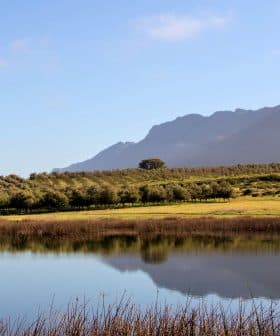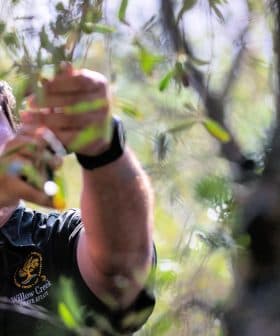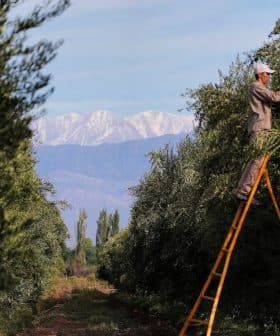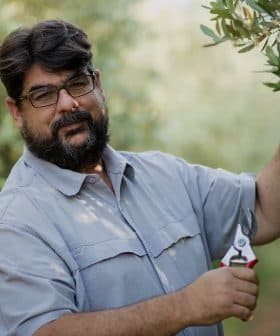As Harvest Gets Underway, South African Producers Face Rolling Blackouts
Olive oil production is expected to decrease in South Africa after consecutive near-record yields. Load shedding and political instability are among the main challenges.
 (Photo: Het Vlock Casteel)
(Photo: Het Vlock Casteel) South African olive oil producers are facing challenges with frequent power outages during the current harvest season, affecting irrigation and milling processes. Despite these difficulties, some producers are optimistic about the harvest yield, while others anticipate lower volumes compared to the previous season, with efforts being made to educate consumers on the benefits of extra virgin olive oil amidst a lack of regulation in the country.
Most South African olive oil producers started harvesting in April amid the challenges created by the frequent electric blackouts, known as load shedding.
These power outages also plagued producers in the previous season but did not prevent many from enjoying a bumper harvest.
With no solution on the horizon, we are bracing ourselves for a harvest season marred by pervasive power cuts and for the additional production costs that olive processors will have to incur.
Still, this year’s load shedding has affected irrigation and delayed some producers as they milled, which can affect olive oil quality. Other agricultural sectors, such as wine, have also been affected by power failures.
During the current year, power outages of varying severity have been reported daily by Eskom, the state-run electricity company.
See Also:2023 Harvest UpdatesEven in Pretoria, the country’s administrative capital, power outages in several areas hinder daily operations of infrastructure, public institutions and private activities. In February, the government declared a disaster to address the crisis, which weighs heavily on agriculture and food producers.
“[For olive growers], the main challenge so far has been the unavailability of electricity to power irrigation pumps. This is due to the load shedding crisis in South Africa,” Vittoria Jooste, the chief executive of the South African Olive Industry Association (SA Olive), told Olive Oil Times.
Uncertainties about future fuel speculations and political conflict worry the agricultural sectors.
“With no solution on the horizon, we are bracing ourselves for a harvest season marred by pervasive power cuts and for the additional production costs that olive processors will have to incur,” Jooste said.
These include costs for diesel to fuel generators, overtime wages when workers must stay late to finish milling and the potential for harvest olives to spoil.
South Africa’s precarious power conditions are closely monitored even by those producers not yet directly affected by the blackouts.
“The extraction of olive oil will be a problem,” Ansie Nigrini, the co-owner of Het Vlock Casteel, a producer in the Western Cape area, told Olive Oil Times.
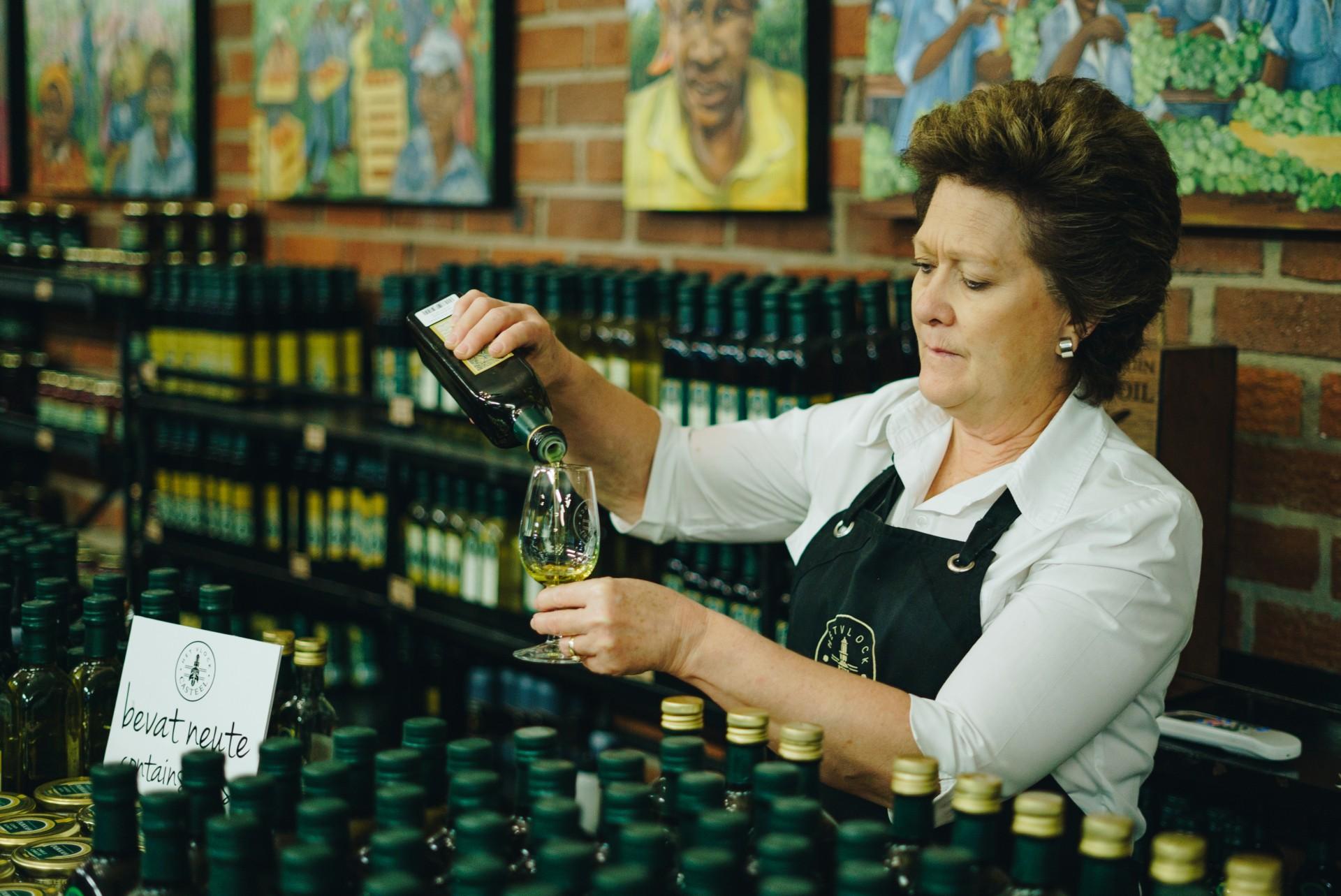
(Photo: Het Vlock Casteel)
“To ensure extra virgin olive oil quality, olives need to be pressed within 24 hours after picking,” she added. “Luckily, we have a generator on-site, but this will increase the operational costs.”
The current harvest is proceeding unevenly. Ryan Westcott, the marketing manager of De Rustica Olive Estate in the Southern Cape, told Olive Oil Times that he expects a good harvest and oil yield, which should exceed 200,000 liters.
However, not all producers share the same optimism as the harvest proceeds. “There seems to be a lower yield this year,” Nigrini said. “During the growing season, we had typical weather, but a lot of rain and thunderstorms in March, which are abnormal in the period, played a role on the field.”
According to SA Olive, the current season’s olive harvest is expected to be lower after the bumper harvest reported in the previous season.
“Volumes are expected to be down compared to the last season in most areas, but overall in line with the past five-year average,” Jooste said.
SA Olive estimated that South Africa produced 1.6 to 1.7 million liters of olive oil in the previous two seasons. The final figures of the current crop year will be released in July and August, at the end of the harvest.
“We started with the harvest of the table olives at the beginning of April,” Nigrini said. She added that the olive harvest to produce oil is starting now.
“It is a bit difficult to say when the harvest will end, but we think it will end at the end of May to mid-June, much sooner than last year,” Nigrini explained.
In the country, most of the olive harvest is done manually. “With few exceptions,” Jooste said. “Due to the extent of the olive growing area in South Africa and the distances between farms, each farm is, in essence, a small community comprising farm owners, employees, seasonal workers and the families they support.”
Looking to the future, local producers want to increase the demand for olive oil domestically.
“The South African olive industry is young,” Westcott said. “Most consumers have not yet had exposure enough [to olive oil] to understand the intricacies, [olive] varieties or health benefits.”
“While some consumers are well informed and seek out quality extra virgin olive oils, the vast majority are price-oriented,” he added. “The consumer does appear to be becoming increasingly aware of the benefits.”
According to Nigrini, once consumers learn about extra virgin olive oil, they seek it out more often. “Nowadays, people are more health conscious, and they value products of a higher quality, hence the reason for consuming extra virgin olive oils,” she said.
“We, as olive producers, try to educate our customers about extra virgin olive oil, on what to look for to make a more informed decision when buying olive oil,” Nigrini added. “In South Africa, the quality of extra virgin olive oil is not regulated by legislation.”
Due to the lack of regulation, Nigrini noted the significance of certifications such as the Commitment to Compliance (CTC) released by the olive association, which she said is crucial in quality control.
A third-party lab certifies whether the olive oil is compliant with the limits of free acidity and peroxide values. “This CTC seal does provide a surety to consumers,” Nigrini said.
“SA Olive works to educate consumers and promote the benefits of extra virgin olive oil,” Josste said. “Harvest season is when certain messages are reinforced, for instance, the importance of processing olives soon after picking to ensure freshness of the extra virgin olive oil.”
Share this article


